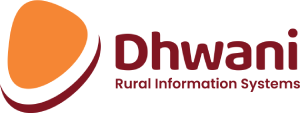‘Bhaiya, ye form bharna toh aa gaya, ab next online payment bhejna bhi dekhenge hum’
Says 48-year-old Ranju Behen, a board member of FPO Karnbhumi
The Indian social sector is undergoing significant changes and is learning faster than ever before, largely due to the increased adoption of technology for good (tech4good) and a shift in the mentality of leadership. One such tech4good project in the livelihood sector is the Karnbhumi Farmer Producer Organization (FPO), run by marginalized women farmers in the Munger and Bhagalpur districts of Bihar.
Karnbhumi was started by Oxfam India in 2016 and is now supported by SEWA Bharat, a non-profit organization dedicated to empowering women in India. The FPO’s primary activities include procuring seeds, fertilizers, and pesticides at bulk prices and delivering them to stakeholders, providing agriculture-specific training to its stakeholders, mapping crop output at the end of the season and connecting stakeholders to local markets.
The board members of the FPO would meet once a month to discuss strategy and address any pressing issues from stakeholders. During one such meeting, the stakeholders decided the need to digitize their processes.
At present, the methods to store all activity records were pen and paper-based, and only a few quick learners would be able to maintain the records on paper in a manner that can be retrieved later by other stakeholders. Differences in writing style, loss of recorded paper and lack of format to name a few were the issues everyone felt better off without. I observed that a growing number of stakeholders had direct or indirect access to smartphones. In the majority of households, smartphones would be used by the husband, who would often go out of the village in search of work and the children who would be attending online classes or playing games.
Over the next few weeks, I spoke to multiple stakeholders of Karnbhumi, including the village heads separately. Everyone seemed receptive to the idea but at the same time a bit hesitant if they would be able to get access to smartphones at the needed times. To this SEWA Bharat provided a few phones that could be used by members of an initial pilot. FPO had 430+ members spread across two districts and 10 blocks. The first step was to get an updated list of all the stakeholders and rectify any mistakes. I had earlier worked on KoboToolBox (an open data kit solution for data collection) and it included features to cover the two most important use cases of data collection for the FPO; offline data collection & translation of questionnaires to Hindi.
With this in mind, we started taking frequent sessions with Karnbhumi board members and SEWA staff to finalize the form questions for each set of activities. It was suggested that, in addition to the existing data, we would also float a profiling form for new members who wish to update their location, household size or any other stats. Post the forms were configured, we collected some dummy data to ensure they were working correctly. For the output to be accessible to more members we connected it to google sheets which would be updated live. In parallel, we started conducting initial rounds of training with the stakeholders across 6 pilot villages each across both districts. It was a dopamine rush to see the zeal with which most of the stakeholders learned & interacted with technology. It was surprising to see that some stakeholders not only learned to operate KoboToolBox but also learned to use the true caller to identify a caller ID, use WhatsApp to video call & record voice notes etc.
Observing them learn & teach others, many stakeholders would find interesting ways to explain a particular feature. I remember someone explaining the notification icon (which looks like a 🔔), ‘think of it like a mandir bell, when you want to take blessings you go & hit it.’
As the data collection took off, we connected the google sheets output to google data studio (now looker studio) to present the insights to SEWA Bharat & Karan Bhumi’s stakeholders. With a few clicks, the board members could now answer the questions of profitability and sales. At the end of six months, we included 12 more pilot villages and expanded our training module. In the next board meeting, many of the stakeholders shared positive feedback on the adoption of new technology.
Overall, the digitization of the data collection process at close to no cost has led to more accurate and accessible information for the stakeholders of Karnbhumi, resulting in improved decision-making and a more efficient FPO. The success of the Karnbhumi project is a testament to the potential for technology to drive positive change in the Indian social sector. The willingness of the stakeholders to learn and adopt new technologies has been crucial to the success of the project and demonstrates the potential for tech4good to improve the lives of marginalized communities. This is the power of open-source technology.
Your Tech Lunch Box:
How to work with KoboToolBox: A great channel to adopt ODK skills
https://www.youtube.com/@HumanitarianDataSolutions
This Blog is part of our Tech Tuesday Series Created for CTO For Non-Profits Community
Note: The views are personal




